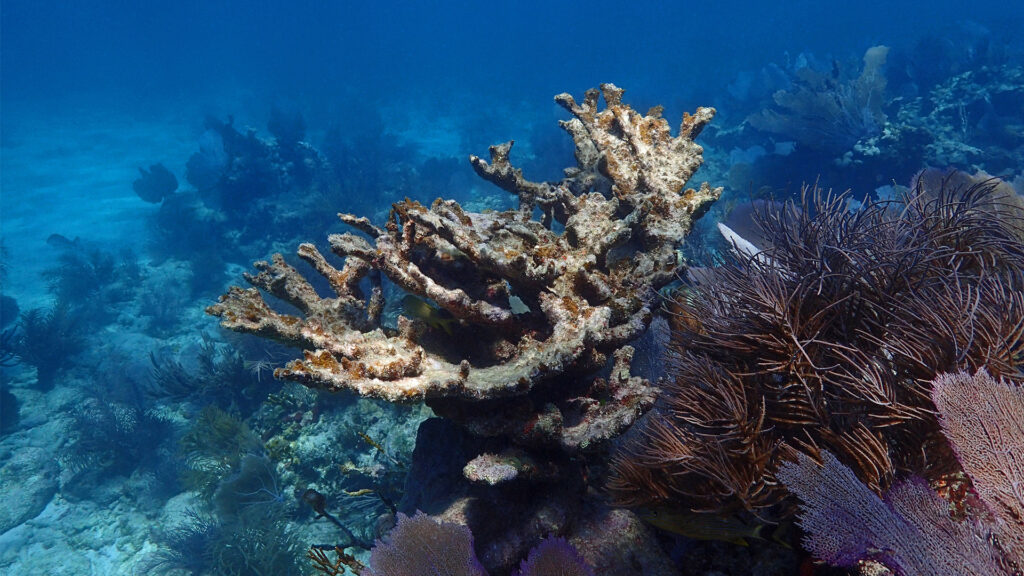A roundup of news items related to climate change and other environmental issues in Florida:
Coral researchers see ‘mass mortality’ amid Florida Keys bleaching crisis | Tampa Bay Times

Battered by heat, washed out to a bleached, white hue and ravaged by disease, corals offshore of Key Largo used what little energy they had left to spawn the next generation that could save their populations.
These elkhorn and staghorn corals — recognized by their iconic branching arms that provide habitat for hundreds of species — are some of the most vulnerable among reefs.
Just weeks after spawning season, more than 90% of those parent corals are dead.
Archaeology group fights to preserve historic Jupiter site and others from rising seas | Palm Beach Post
JUPITER — Walking along the shoreline near the Jupiter Inlet Lighthouse, archaeologist Sara Ayers-Rigsby points to a historic seawall.
She describes the potential effects of flooding from king tides and other events.
“As these events become more frequent, it’s just going to contribute to deteriorating that, and then you have a situation where it is then flooding the site and submerging these historic and archaeological resources,” said Ayers-Rigsby, director of the Florida Public Archaeology Network’s Southeast and Southwest regions.
The race to protect Florida’s Wildlife Corridor | WUSF
The Florida Wildlife Corridor stretches from the Everglades to North Florida and to the Panhandle. It includes animals like the Florida black bear, the Key deer, Florida manatee, Loggerhead sea turtle and more, along with many threatened plant species.
The corridor also allows animals freedom to roam between areas of protected conservation land.
It’s also important for fishing, ranching, recreational activities — and the state’s drinking water. Ten million acres of the corridor are protected conservation land, but that leaves 8 million acres, including farmland, vulnerable to development. And that’s the focus of a documentary series called “Protect Our Paradise” which is streaming on the Discover Florida Channel this fall.
If you have any news items of note that you think we should include in our next roundup, please email The Invading Sea Editor Nathan Crabbe at ncrabbe@fau.edu. Sign up for The Invading Sea newsletter by visiting here.



